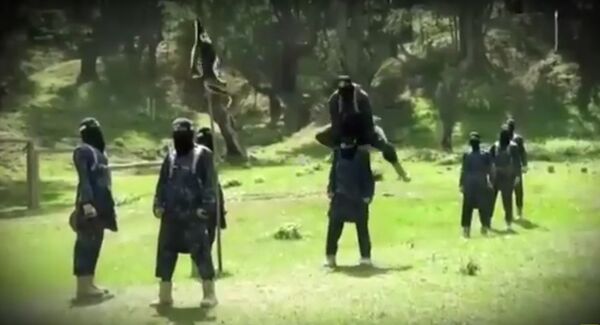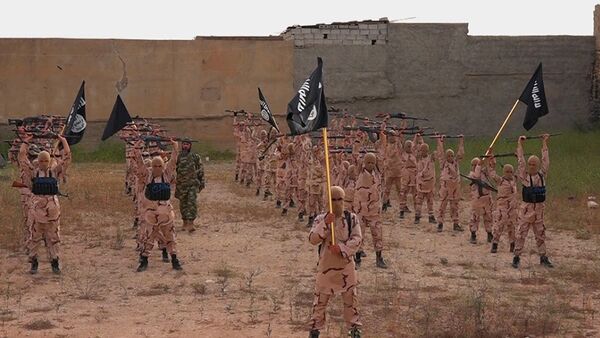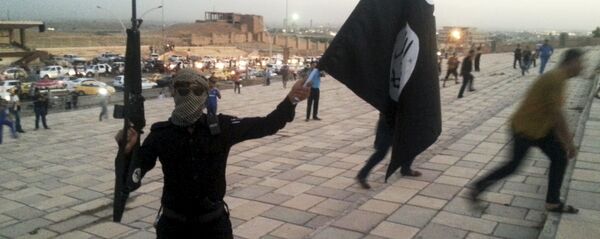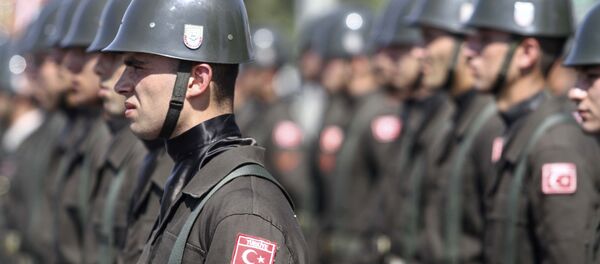"In August 2014 I trained in Adana under a Daesh commander," said 20-year-old Abdurrahman Adulhadi. He was captured by the Kurdish People's Protection Units (YPG) earlier this month in the al-Hol region of eastern al-Hasakah Governorate, northeastern Syria.
"There were 60 of us, and we trained in a village not far from the airport. We got up in the morning and played sport. Once a week we had target practice, they taught us how to use Kalashnikovs, machine guns and other kinds of weaponry."
"We were trained by Ahmet from Urfa (a city in the South Eastern Anatolia region of Turkey, close to the Syrian border), and a group member called Ibrahim was our interpreter."
"The training took place in Turkey because the Daesh command thought that it was safer there than in Syria. It wasn't possible to carry out training in Syria because of airstrikes."
Adulhadi said that Daesh presented its training facility in Adana to local media as a camp of the Free Syrian Army (FSA), one of many opposition groups the Turkish government allows to have a base in Turkey; the FSA's base is in the city of Hatay on the Turkish-Syrian border.
"In the media they wrote that we were training in an FSA military camp, but in fact, all 60 of us were members of Daesh. We were Syrian nationals, many of whom in the beginning moved to Turkey to earn some money, and then joined Daesh."

"I made contacts with Syrians on the internet, helped them to get to Turkey and begin training. After I undertook the training, for five months I lived together with a relative who was a Daesh commander in Adana. My task was to meet the new recruits arriving from Syria. After training we sent them to Urfa, and from there – to Raqqa. From Raqqa they distributed themselves across different regions of Syria."
"Heavy weapons were delivered from Ash-Shaddadi (a town in southern Al-Hasakah Governorate)," said Adulhadi. He explained that he had been sent by a Daesh commander to work for the group's intelligence service in the town when he was captured by the YPG.
"I spent one night there, and the next night December 11 2015 YPG forces attacked our positions, and took both of us captive. In al-Hol the commander was a Frenchman called Abu Yahya."
Adulhadi, whose brother is still fighting for the terrorist organization, added that he was left disillusioned by his time with the terrorist organization.
"What I read about Daesh, and what I was faced with in reality were absolutely different things," he said.





